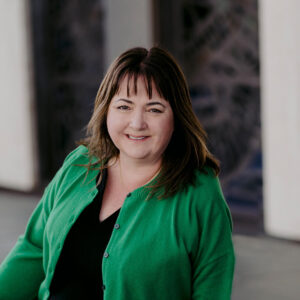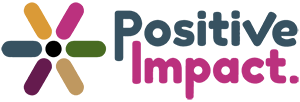Have a positive impact
About
+
Having a Positive Impact is an intention and an aspiration at the heart of the work we do.
‘Positive’ is about the kind of impact we want to make and the evidence base that informs our work, that is positive psychology – the scientific study of individual, organisation, community and societal wellbeing. (To understand more about positive psychology, click here).
‘Impact’ is about conscious intention: a word chosen to highlight the need to continuously reflect upon how we want to be and show up in the world – not only for ourselves, but also for those we care about at home and in the workplace. For the teams and organisations we are a part of, and the communities and societies we belong to.

"We can do hard things."
– Glennon Doyle, Untamed
About
Angelina Eynon
Founder and Director, Positive Impact B.A., Grad Dip. Comms., Master of Applied Positive Psychology (MAPP)

Angelina facilitates and coaches wellbeing and leadership programs, specialising in strengthening the confidence and resilience of senior professional women. She has worked with hundreds of individuals and teams, in banking, energy, accounting, the law, education, local and State government departments, to help them become stronger and more courageous versions of themselves, for themselves and those they serve. Angelina is also a lecturer in the Business and Economics faculty at Monash University, teaching a positive psychology-based leadership development unit.
She has a Masters in Applied Positive Psychology at Melbourne University, her Capstone thesis was on Thriving Women, Thriving Workplaces. Angelina’s is committed to using her strengths and talents towards making a positive difference for the individuals and groups she works with. This means:
- using sustainable approaches, (that is, not going for the quick and easy fix).
- using scientific evidence to inform the tools she uses with her clients.
- only working with individuals and organisations demonstrating commitment and action towards inclusion and workplace gender equality.
Get in touch with Angelina via our contact form or on LinkedIn

“The summit of happiness is reached when a person is ready to be what (s)he is.”
– Manager, Department of Education and Training, Victoria
+
About Positive Psychology
Positive Psychology is the scientific study of the components and conditions that create wellbeing and high performance in individuals, groups, organisations and nations. Some of the key research areas and resources within positive psychology include
- Strengths and strengths-based approaches
- Emotional literacy
- Motivation and self-determination
- Mindfulness and enhanced focus, attention and decision-making
- High quality connections/relationships
- Nature-connectedness
- Appreciative Inquiry
- Positive psychology and strengths-based Coaching
- Positive organisational scholarship and positive leadership
- Positive Education
- Global Flourishing Study
- World Happiness Report
Positive Psychology initially arose from a need for alternative, evidence-based solutions for increasing levels of depression, anxiety and psychological ill-being. The traditional, deficit model starts with consideration of ‘what’s wrong and how can it be fixed.’ Positive Psychology instead takes a strengths-oriented approach and looks at different questions such as: what does high performance look like and how can we emulate that? What are the factors that encourage, strengthen and promote thriving in people and groups? How can we be our best possible selves?
Traditional psychology had evolved post World Wars to focus much of its research efforts to focussing on disease, disorder, trauma and psycho-pathology. Most research in psychology is still focused on these areas – particularly right now in the wake of the coronavirus pandemic. Positive Psychology offers additional approaches that are increasingly used within schools and universities; organisations and government departments; and even at national and global levels.

“Angelina’s session on Positive Leadership was the most thought-provoking session of the entire series. Not only is she an engaging speaker, she also gave us practical, valuable tips that I went away and tried – with success – with my team.”
– Manager, Department of Education and Training, Victoria
Women
We are at a crucible moment in history where women’s voices, talents and skills are starting to be heard and recognised, and can change our world for the better. There is extensive research showing links between higher numbers of women in leadership positions improving decision making, innovation and overall company performance. Greater numbers of women in governments lead to better health and education outcomes, and even less corruption. Countries with higher levels of gender equality also have more positive attitudes, laws and policies on inclusion more broadly. In short, when women are treated equally to men: individuals, organisations, societies and nations thrive.
Australia has made significant improvements towards achieving gender equality over the past two years, jumping from a low of 53rd in 2021, to being currently ranked 26th on the World Economic Forum’s Global Gender Gap Index (2023),
There is still a way to go, however, with the gender pay gap in Australia remaining around the 13 per cent mark. This means Australian women, on average, earn $0.87 to every male $1.00 earned. This differs by industry: with professional, scientific and technical services having a 22.7% gap, and financial services a 19.2% gender pay gap in Australia.
Women are still under-represented in key decision-making roles with only 22.3% of CEOs being women; 18% of Board Chairs being women and 35.1% of key management positions, being held by women.
Whilst there is still gender inequality in Australia’s key economic and law-making institutions, Positive Impact will continue to focus specifically on the growth and empowerment of women.
Find out about our Services
Coaching
Learn more about our range of coaching offerings - one-on-one leadership coaching; emerging leader coaching, organisational coaching; small group coaching; or, our new Women’s Power Pods, please click here.
Programs
Learn more about our range of workshops, programs and tailored facilitated sessions.
